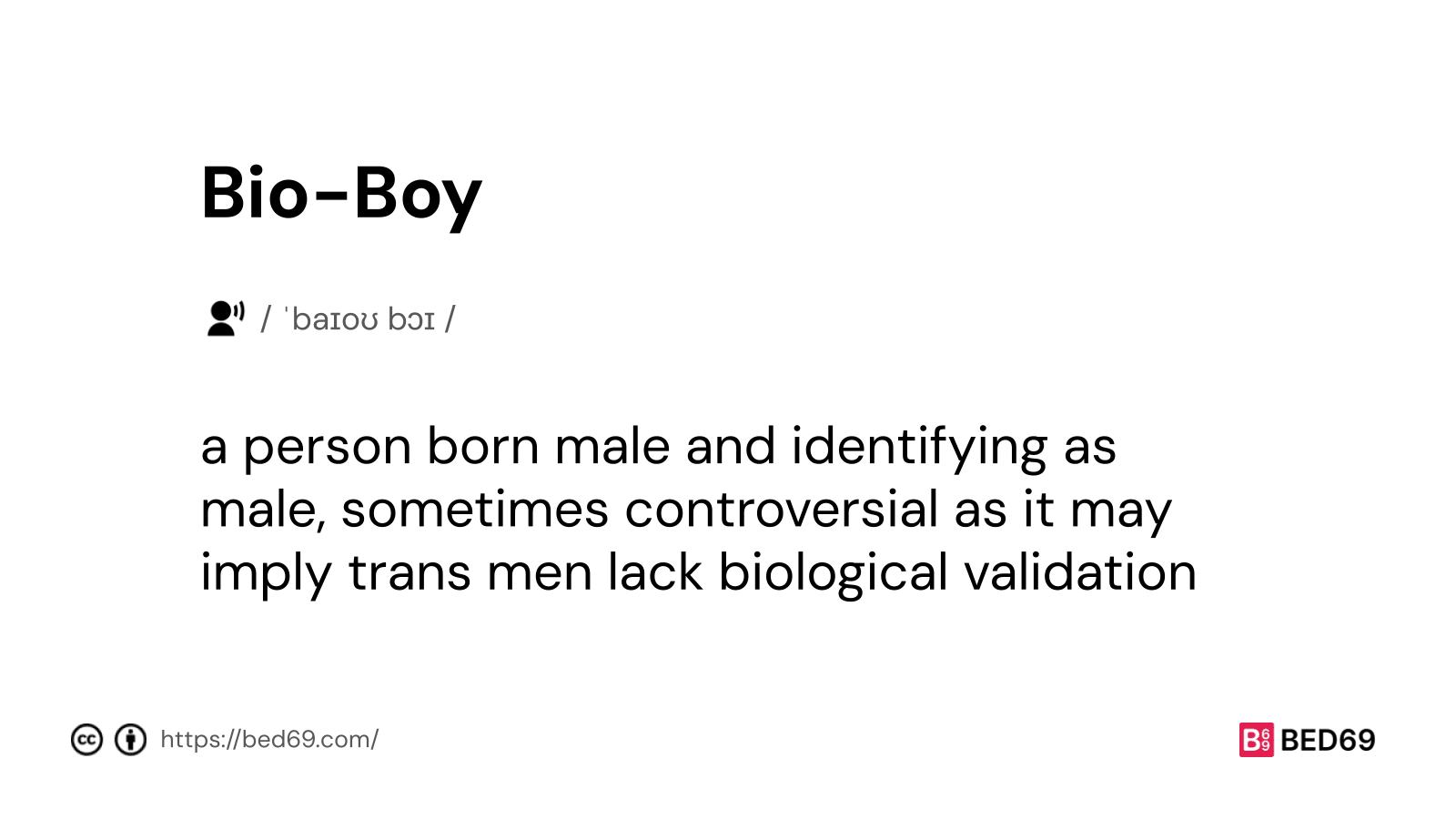What is Bio-Boy?
A Bio-Boy is a person who is born male and identifies as male. Some in the trans community may not like this term because it can suggest that trans men lack a biological reason to be male. Biology is complex, not just male/female, so some males don’t fit neatly in these categories.
Bio-Boy pronunciation: / ˈbaɪoʊ bɔɪ /

How does Bio-Boy challenge gender norms
Bio-Boy challenges gender norms by emphasizing the complexity of gender identity and expression. It highlights that being male involves more than just biological factors, acknowledging the diverse experiences within the male gender spectrum. This term underlines that gender goes beyond traditional binaries, recognizing the nuances in how individuals perceive and present themselves.
By acknowledging that biology is not the sole determinant of gender, Bio-Boy promotes inclusivity and understanding for those who may not conform to conventional expectations of masculinity. In essence, it encourages a broader acceptance of diverse gender identities and expressions, fostering a more inclusive and respectful society.
Impact of the term Bio-Boy on the trans community
The term “Bio-Boy” can spark mixed reactions within the trans community. Some individuals find it problematic as it may insinuate that trans men lack a biological reason to identify as male. This simplistic view overlooks the intricate nature of biology, where not all males neatly fit into binary categories.
It’s crucial to recognize that being a bio-boy signifies a non-trans male, one who identifies as male without undergoing a gender transition. In the realm of gender diversity, acknowledging the complexity of biological factors is essential for fostering inclusivity and understanding.
By using the term “Bio-Boy,” it’s important to remain mindful of its potential implications on how trans individuals are perceived and accepted within society. Understanding the multifaceted aspects of gender and biology can lead to more supportive and inclusive environments for all individuals, irrespective of their identities.
Explore other interesting terms:
